The politics of Croatia are defined by a parliamentary, representative democratic republic framework, where the Prime Minister of Croatia is the head of government in a multi-party system. Executive power is exercised by the Government and the President of Croatia. Legislative power is vested in the Croatian Parliament. The Judiciary is independent of the executive and the legislature. The parliament adopted the current Constitution of Croatia on 22 December 1990 and decided to declare independence from Yugoslavia on 25 May 1991. The Constitutional Decision on the Sovereignty and Independence of the Republic of Croatia came into effect on 8 October 1991. The constitution has since been amended several times. The first modern parties in the country developed in the middle of the 19th century, and their agenda and appeal changed, reflecting major social changes, such as the breakup of Austria-Hungary, the Kingdom of Serbs, Croats and Slovenes, dictatorship and social upheavals in the kingdom, World War II, the establishment of Communist rule and the breakup of the SFR Yugoslavia.
The politics of Slovenia takes place in a framework of a parliamentary representative democratic republic, whereby the Prime Minister of Slovenia is the head of government, and of a multi-party system. Executive power is exercised by the Government of Slovenia. Legislative power is vested in the National Assembly and in minor part in the National Council. The judiciary of Slovenia is independent of the executive and the legislature. Slovenia is a Member State of the European Union and is represented in the Council of the EU and through elections to the European Parliament.

Janez Drnovšek was a Slovenian liberal politician, President of the Presidency of Yugoslavia (1989–1990), Prime Minister of Slovenia and President of Slovenia (2002–2007).

Danilo Türk is a Slovenian diplomat, professor of international law, human rights expert, and political figure who served as President of Slovenia from 2007 to 2012. He was the first Slovene ambassador to the United Nations, from 1992 to 2000, and was the UN Assistant Secretary General for Political Affairs from 2000 to 2005.
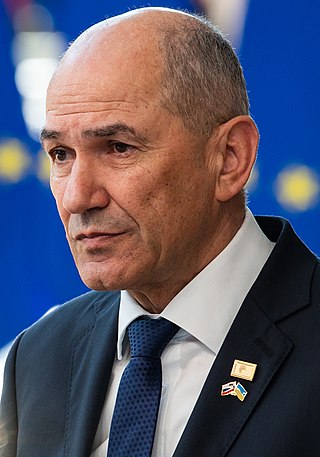
Ivan Janša, baptized and best known as Janez Janša, is a Slovenian politician who served three times as a prime minister of Slovenia, a position he had held from 2004 to 2008, from 2012 to 2013, and from 2020 to 2022. Since 1993, Janša has led the Slovenian Democratic Party, which has emerged as the pre-eminent Slovenian conservative party. Janša lost his fourth bid for prime minister in April 2022, his party defeated by the Freedom Movement party.

Mihael Brejc, also known as Miha Brejc is a Slovenian politician and former Member of the European Parliament.
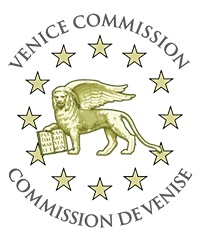
The Venice Commission, officially European Commission for Democracy through Law, is an advisory body of the Council of Europe, composed of independent experts in the field of constitutional law. It was created in 1990 after the fall of the Berlin Wall, at a time of urgent need for constitutional assistance in Central and Eastern Europe.
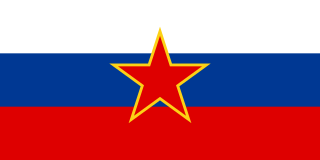
The Socialist Republic of Slovenia, commonly referred to as Socialist Slovenia or simply Slovenia, was one of the six federal republics forming Yugoslavia and the nation state of the Slovenes. It existed under various names from its creation on 29 November 1945 until 25 June 1991.
Klaus Tolksdorf is a German legal scholar who served as the eighth President of the Federal Court of Justice of Germany from 2008 to 2014 as well as an ad litem judge of the International Criminal Tribunal for the former Yugoslavia.

Karl Viktor Erjavec is a Slovenian lawyer and politician who served in the government of Slovenia as Minister of Foreign Affairs from 2012 to 2018. He was the president of the Democratic Party of Pensioners of Slovenia, having held the position from 2005 to January 2020 and again from December 2020 until March 2021. He was Minister of Defense from 2004 to 2008 and 2018 to 2020 and Minister of Environment and Spatial Planning from 2008 to 2010.

Milan Zver is a Slovenian politician and Member of the European Parliament (MEP) from Slovenia. He is a member of the Slovenian Democratic Party, part of the European People's Party. He is the Vice-President of the Slovenian Democratic Party. He served as Minister of Education and Sports from 2004 to 2008.

The Faculty of Law of the University in Belgrade, also known as the Belgrade Law School, is one of the first-tier educational institutions of the University of Belgrade, Serbia. The building is located in the heart of the old part of Belgrade, in the urban neighborhood of Palilula, contiguously to the city park Tašmajdan, on Bulevar kralja Aleksandra.
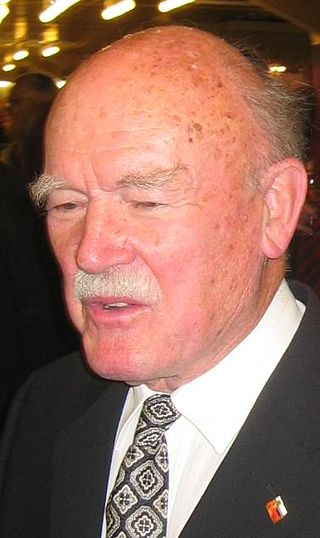
France Bučar was a Slovenian politician, legal expert and author. Between 1990 and 1992, he served as the first speaker of the freely elected Slovenian Parliament. He was the one to formally declare the independence of Slovenia on 25 June 1991. He is considered one of the founding fathers of Slovenian democracy and independence. He is also considered, together with Peter Jambrek, the main author of the current Slovenian constitution.
The Slovenian Democratic Union was a Slovene liberal political party, active between 1989 and 1991, during the democratization and the secession of the Republic of Slovenia from Yugoslavia.
The Vidovdan Constitution was the first constitution of the Kingdom of Serbs, Croats and Slovenes. It was approved by the Constitutional Assembly on 28 June 1921 despite the opposition boycotting the vote. The Constitution is named after the feast of St. Vitus (Vidovdan), a Serbian Orthodox holiday. The Constitution required a simple majority to pass. Out of 419 representatives, 223 voted for, 35 voted against and 161 abstained.
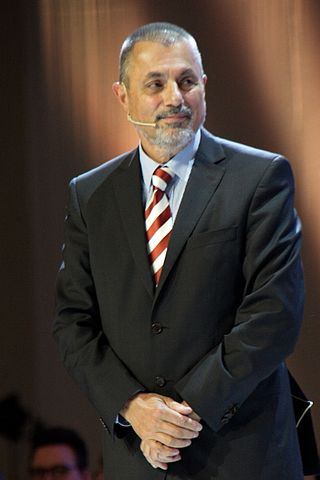
Peter Jambrek is a Slovenian sociologist, jurist, politician and intellectual. He is considered among the fathers of the current Slovenian Constitution, and the most influential public intellectuals in Slovenia.
Ciril Ribičič is a Slovenian jurist, politician and author. Since 2000, he has served as a member of the Constitutional Court of Slovenia.
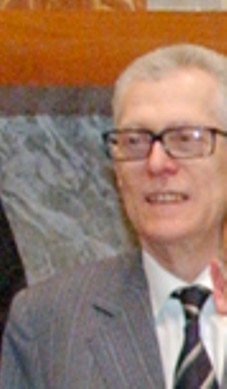
Lovro Šturm was a Slovenian jurist and politician. He was a law professor and served as the president and judge of the Constitutional Court of Slovenia, the Minister of Education and Minister of Justice of Slovenia.
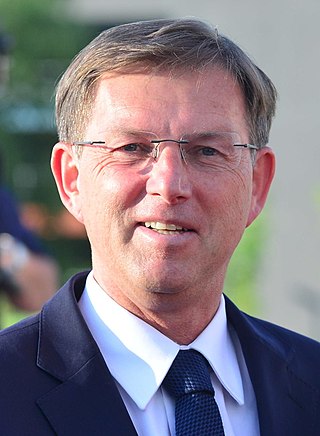
Miroslav Cerar Jr. is a Slovenian law professor and politician. He was Prime Minister of Slovenia, leading the 12th Government. He served as Deputy Prime Minister and Minister of Foreign Affairs in the 13th Government. He is a full professor at the Chair of Theory and Sociology of Law at the University of Ljubljana Faculty of Law.

Janez Kocijančič was a Slovene politician and lawyer. He was also the president of the Slovenian Olympic Committee from 1991 to 2014.














